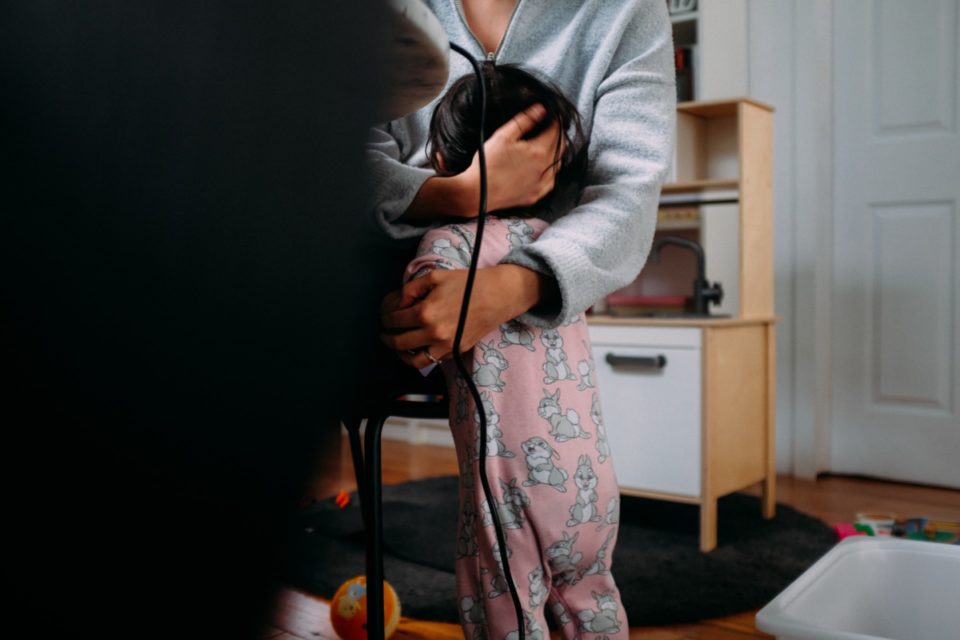January 18, 2023
Overview of Different Parenting Styles
Written by Rachel Eddins
Posted in Parenting & Family and with tags: parenting

Becoming a parent can be one of the most rewarding yet challenging aspects of life. When a child enters your life, it might take some time to determine which parenting type works best for you and your child.
Even if you’ve had a child for several years, you can still alter how you parent them to help improve your relationship with them and encourage their development.
Parenting is critical because it can shape a child’s behavior in childhood and encourage them to develop certain traits they’ll carry with them into adulthood.
Our team at Eddins Counseling Group put together an overview of different parenting styles.
Authoritative Parenting
Authoritative parenting sounds similar to authoritarian, but the concepts can produce very different results for a child. When you choose to be an authoritative parent, you’re more likely to develop a close, nurturing relationship with your child while still having high expectations for them.
This type of parent establishes guidelines they want the kid to adhere to, but they explain the reasoning behind their logic. If the child fails to meet the guidelines, the parents give disciplinary consequences, which are less punishment-based and more ways to support the child and help them learn from the mistake.
This parenting style also lets kids have input on their goals and expectations, which can decrease stress levels and increase emotional health.
Often, with authoritative parenting, the parents and child havefrequent two-way communication, which means both parties can express their thoughts to each other and work together to solve challenges.
While this type of parenting can produce the healthiest results in a kid, both the parent and the child require patience and effort.
The behaviors of a child receiving this type of authoritative parenting may include:
- Confidence.
- Responsibility.
- Self-regulation.
- Independence.
- High self-esteem.
These children may also perform well in school.
Authoritarian Parenting
Authoritarian parenting is based on a one-way mode of communication, from parent to child. The parent establishes strict rules for the kid to abide by, with little to no room for negotiations on the child’s end.
Often, the parent doesn’t explain the guidelines to the kid. They may feel the children shouldn’t question them for their reasoning because they are in charge. Typically, parents with this style hold their children to high standards and allow little room for errors.
If the kid makes a mistake, the consequences often involve punishment. These parents also tend to be less nurturing toward their children but hold high expectations for them.
The effects this parenting style can have on children include being one of the most behaved individuals in a room because they may fear making mistakes due to the punishments.
Additionally, these children may listen to instructions better, including following the minor details that others might overlook because they want to do it right without getting in trouble.
While behaving and listening are positive effects of this authoritarian parenting style, these children may also exhibit behavior such as:
- Aggression.
- Shyness.
- Indecisiveness.
- Low self-esteem.
- Unhappiness.
- Inadequate social competence.
These children may perform poorly in school and rebel as they get older.
Permissive Parenting
Permissive parenting can have a warm, inviting relationship with their children, but they may hold minimal expectations. This relationship can resemble a friendship rather than a parent-child relationship.
Usually, children with permissive parents have very few rules and guidelines that they have to adhere to compared to kids with authoritarian or authoritative parents. While the parents and children communicate with each other, the parents may leave the kids to figure out challenges on their own rather than helping them figure it out or supporting them through it.
Additionally, due to the parents having little to no expectations, there are usually no consequences for the child.
Typically, kids living with this type of parenting may develop unhealthy eating habits early in life because they can have any snacks they desire whenever they want. These parents may also go out of their way to make their children happy, even if it means the parents themselves aren’t happy.
Some behaviors children with permissive parents may exhibit include:
- Delinquency.
- Moderate self-esteem.
- Impulsiveness.
- Selfishness.
- Assertiveness.
- Poor self-regulation.
Neglectful Parenting
Neglectful or uninvolved parenting usually entails children doing whatever they want, whenever they want, while the parents stay relatively uninvolved in their lives even while they’re in the same household.
Often, these parents still meet their kid’s basic needs, such as shelter, food, and clothes, without taking much of an interest in their life.
Usually, these parents don’t adhere to any discipline styles, so the child rarely receives consequences from their parents. Additionally, there’s little communication style between the parent and the child.
The parents aren’t very nurturing and hold very little to no expectations for the kid.
Some behaviors of a child with neglectful or uninvolved parents include:
- Resilience.
- Self-sufficiency.
- Difficulty controlling emotions.
- Less effective coping strategies.
- Difficulty developing social and emotional relationships with others.
These children may also have more academic challenges. Due to their lack of involvement in the child’s life, or their preoccupation with other aspects of their lives, such as work or finances, uninvolved parents can seem cold and uncaring to their children.
According to the Parenting for Brain website:
- “In the U.S., roughly 46% of parents use an authoritative parenting style,
- 26% authoritarian parenting style,
- 18% permissive parenting style, and
- 10% neglectful parenting style.”
While there’s no one right way to parent, and these styles may vary based on your family, authoritative parents likely raise confident, self-sufficient, and socially competent children. However, kids with authoritative parents aren’t immune to mental health or other challenges.
As a parent, you may even choose to use a mixed parenting approach where you borrow various ideas from each style.
Next Steps
To learn more about how to develop your parenting skills or if you need parenting support, contact us at 832-843-1555. Or, if your child or teenagers are seeking counseling, we can help. Our dedicated Eddins Counseling Group therapists in Houston, Montrose, and Sugar Land want to help provide you with helpful tools to develop a strong relationship with your children.
Image by charlesdeluvio is licensed with Unsplash License
















